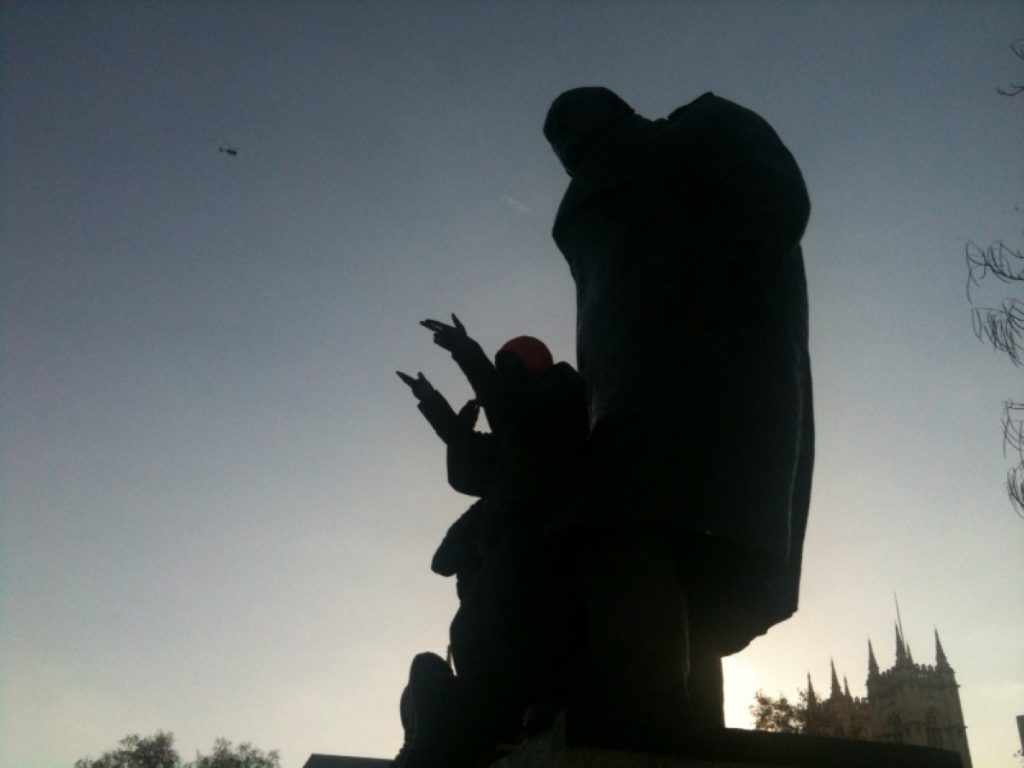Police issue Section 5 threat to protesters ahead of Thatcher funeral
Protesters were warned to stay away from Margaret Thatcher's funeral procession on Wednesday or face being arrested under a controversial law outlawing "alarm, harassment or distress".
Section 5 of the Public Order Act is considered a severe infringement on free speech by civil liberties advocates but police say it is more likely to be employed at Thatcher's funeral because mourners are particularly likely to be caused distress.
"Margaret Thatcher's funeral is a public event of political significance," police monitoring group Netpol said.
"People should have the freedom to express their views and feelings without fear of dawn raids, pre-emptive arrest, or having to spend hours in a police 'kettle'."


"This is a public state occasion not a private family funeral. The power is so wide-ranging that it gives police huge discretion over who they can arrest. It is tantamount to arresting people that are not supportive of Thatcher's ideology."
Thousands are expected to attend the funeral on Wednesday as it winds its way through London to St Paul's, where there will be a service followed by a private cremation.
But the ceremonial nature of the funeral has encouraged many of those who object to Thatcher's politics to protest the event, amid concerns the former prime minister's divisive legacy was being papered over to turn her into a statesmanlike figure.
It is understood that a large number of protesters are planning on simply turning their back on the coffin as the procession winds its way through London. Scotland Yard are reportedly prepared to grant permission for that action, even though it could well trigger distress among mourners.
That seeming contradiction highlights some of the problems the police encounter when they employ the controversial law.
Other objections to its use usually focus on concerns around freedom of speech. Last year there was outrage when David Lawley-Wakelin was charged under Section 5 for heckling Tony Blair when he gave evidence to the Leveson Inquiry.
The Metropolitan police's track record on dealing with pre-emptive moves against potential mass protests is not encouraging. Before the royal wedding, they arrested potential protesters in a move which is still being challenged in the courts.
There was also anger at the arrest of 182 cyclists from protest movement Critical Mass before the Opening Ceremony of the Olympics. Only nine were prosecuted and five convicted.
Nine protesters were arrested during Thatcher 'death parties' this weekend in Trafalgar Square, with charges for assaulting police, affray and being drunk and disorderly.
A full rehearsal for the funeral took place in central London this morning, with organisers saying it went "very well".
More than 700 serving armed forces personnel took part in the central London procession, as the coffin was carried on a horse-drawn gun carriage from St Clement Danes to St Paul's.












